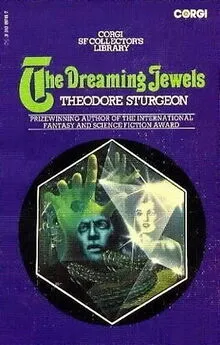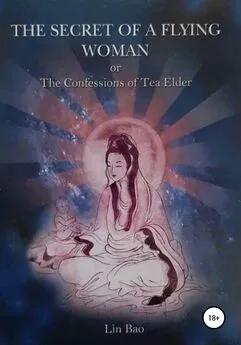Kim ManChoong - The Cloud Dream of the Nine
- Название:The Cloud Dream of the Nine
- Автор:
- Жанр:
- Издательство:неизвестно
- Год:неизвестен
- ISBN:нет данных
- Рейтинг:
- Избранное:Добавить в избранное
-
Отзывы:
-
Ваша оценка:
Kim ManChoong - The Cloud Dream of the Nine краткое содержание
The Cloud Dream of the Nine - читать онлайн бесплатно полную версию (весь текст целиком)
Интервал:
Закладка:
At this moment Song-jin crossed the Tong-jong River and entered the Water Palace of the Dragon King. His Majesty was greatly delighted at his coming, stepped outside the gates to meet him, took him by the hand, led him in and bid him share his throne.
Song-jin made his obeisance and gave his message from the Master.
The King in response bowed low and ordered a feast of welcome to be prepared, at which were fruits and dainties of the fairies in abundance, and of such flavour as the dwellers in the hills alone know. The Dragon King himself passed the glass and urged him to drink. Song-jin several times refused, saying: “Wine is a drink that upsets and maddens the soul, and is therefore strictly forbidden by the Buddha, so your humble servant must not partake.”
But the Dragon King replied: “I am aware that among the five things forbidden by Gautama wine is one, but the wine that I offer is different altogether from the maddening kind that men drink. It represses the passions and quiets the soul. You will not mistrust my sincerity in offering it I am sure.”
Song-jin, moved by this kindness, could not any longer refuse, and he drank three glasses. He then spoke his greeting and came forth from the Water Palace, riding on the wind and sailing directly for Lotus Peak.
When he had landed at the base of the hill the influence of the wine was already manifest in his face and a feeling of dizziness possessed him, so that he reprimanded himself, saying: “If my honoured Master sees me with this inflamed expression how startled he will be and how soundly he will chide me.”
He sat down by the bank of the stream, put off his outer garments, placed them on the clean sand and dipped his hands in the limpid water. Thus he sat bathing his hot face, when suddenly a strange and mysterious fragrance was borne toward him, not the perfume of orchid or musk nor that of any special flower, but something wholly new and not experienced before. The soul of passion and uncleanness seemed dissipated by its presence, and a purity indescribable seemed to remain. He said to himself: “What wonderful flowers are these by the side of this brook that such sweet perfume should come floating on its wavelets? I will go and see from whence it comes.”
He dressed carefully, followed the course of the stream upwards, and found the eight fairies seated on the stone bridge so that they met suddenly face to face, he and they.
[CUTLINE: The Fairies on the Bridge (from frontispiece)]
Song-jin laid aside his pilgrim's staff and made a deep, low bow, saying: “Ladies of the Fairies' Paradise, hear what a poor priest has to say. I am a disciple of the Master Yook-kwan and live on Lotus Peak. Just now I am returning from a mission beyond the mountains on which he sent me. This stone bridge is very narrow, and you goddesses being seated upon it block the way; will you not kindly take your lotus footsteps hence and let me pass?”
The fairies bowed in return and said: “We attendants who wait on Queen Wee are on our return from carrying a message of goodwill to the Master of the Temple, and have stopped here for a little to rest. We have heard that it is written in the Book of Ceremony concerning the law of the road that man goes to the left and woman to the right. Now as this bridge is a very narrow one, and we are already seated here, it would seem more fitting that you should avoid it altogether, and cross by some other way.”
Song-jin said in reply: “But the water of the stream is deep, and there is no other way. Where do you suggest that your humble servant should go?”
The fairies replied: “It is said that the great Talma [4]
came across the ocean on a leaf. Now if you are a disciple of the Teacher Yook-kwan and have learned the doctrine from him, naturally you will have learned to do some such wonderful thing. There surely will be no difficulty for you to cross this narrow stream instead of standing here and disputing with us girls about the way.”
Song-jin laughed and said: “I see by your ladyships' behaviour that you ask that I pay some price or other for the right to cross, but I have no money, for I am only a poor priest. I have, however, eight jewels which I will present to you if you will kindly permit me to pass by.”
At this he threw the peach blossom that he carried in his hand before them and it became four couplets of red flowers, and these again were transformed into eight jewels that filled the place with sparkling light, shooting up to heaven.
The fairies each picked up one; then they looked toward Song-jin, laughed in a delighted way, arose, mounted the winds and sailed off through the air.
Song-jin stood at the head of the bridge and watched them for a long time till they were lost in the clouds and the sweet fragrance had melted away. In loneliness, as though he had failed of his highest hopes, he came back to the temple and gave his message from the Dragon King to the Master.
The Master reprimanded him for his late return, and Song-jin said: “The Dragon King treated me so liberally, sir, and his urgent request to stay was so impossible to refuse, that I have been delayed beyond the time.”
The Master gave no direct reply, but simply said: “Go away and rest.”
Song-jin went back to his little hut of meditation while the evening shadows closed down upon the day. Since meeting with the eight fairies his ears had been ringing with sweet voices, and though he tried to forget their beautiful faces and graceful forms he could not succeed. However much he endeavoured to rein in his thoughts he found it impossible. His mind was as that of a person half insane or half intoxicated. He pulled himself together, however, and knelt reverently, saying: “If a man study diligently the Confucian Classics and then grow up to meet a king like Yo or Soon, he can either become a general to go abroad, or be a minister of state at home. He can dress in silk and carry a seal of office at his belt; can bow before the king; can dispense favours among the people; can look on beautiful things with the eyes and hear delightful sounds with the ears. He can have his fill of glory in this life, and can leave a reputation for generations to come; but we Buddhists have only our little dish of rice and flask of water. Many dry books are there for us to learn, and our beads to say over till we are old and grey. It may be high and praiseworthy from the point of view of religion, but the vacant longings that it never satisfies are too deep to mention. Even though one gets to understand all the laws of the Mahayana revelation, though one proclaims the same and finds oneself exalted to the place of sage and teacher, when once the spirit and soul dissipate into smoke and nothingness, who will ever know that a person called Song-jin once lived upon this earth?”
So his thoughts wandered. He tried to sleep but sleep refused to come. The hours grew late. Sometimes he closed his eyes for a little, but the eight fairies persistently appeared before him in a row and drove sleep far away. Then he suddenly realised that the great purpose of Buddhism was to correct the thoughts and the heart. “I have been a Buddhist for ten years,” said he, “and I had well-nigh succeeded in getting done with the world till this deceitful mind of mine got itself tangled up to the damage of my soul.”
He burned incense, knelt, called in all his thoughts, counted his beads, recalled to his consciousness the thousand Buddhas that could help him, when suddenly one of the temple boys came to his window and spoke, saying: “Elder brother, are you asleep? The Master is calling you.”
Song-jin, in alarm, said to himself: “His calling me in this unusual way in the middle of the night can only mean something serious.”
He went along with the boy to the Audience Hall of the Buddha, where the chief had assembled all the priests of the temple and was sitting in solemn silence. His appearance was one to inspire fear and question. The light of the candles shone brilliantly. He spoke with great care, but with severe intonation.
“Song-jin, do you know how you have sinned?”
Song-jin, who was bowed low, kneeling before the dais, replied: “I have now been a disciple of the Master for ten years and more, and have never disobeyed any command or any order concerning acts of worship in which I have had a part. I am dark and ignorant I know, and so am not aware of how I have offended.”
The Master said: “There are three things that must be exercised in the ordering of one's acts, namely, the body, the mind, and the soul. You went to the Dragon King and drank wine, did you not? Again, on your way back by the stone bridge you had a long and frivolous conversation with the messengers of Queen Wee. You gave them each a flower and made jokes and light talk. Since coming back, too, you have not put these recollections from your mind and heart, but instead have allowed yourself to be entangled with worldly delights; you have been thinking of riches and honour with all the other temptations of the earth, and have turned with loathing from the doctrine of the Buddha. Thus your three degrees of attainment have all fallen from you in a single hour. You can remain here no longer.”
Song-jin, overcome to tears, prayed for forgiveness. He said: “Great Master, I am indeed a sinner. Still my breaking the rule regarding drink was because the king so forced and compelled me; and my talking with the fairies was only because I asked of them the way. I had had no such intention in my heart. Why am I thus condemned? I will go back to my cell, and though evil thoughts assail me I will keep my spirit awake against them and overcome their madness, so that a true mind will assuredly return. I will bite my hands and I will repent of the wrong I have done, and my heart will be restored. It tells in Confucianism how one can thus return to the right way. As I have sinned will my revered Father not give me a flogging and set me right? This is what I understand to be the teaching of the Buddha. Why should you drive me away from all possibility of reformation? I came to you when I was only twelve years of age, gave up my parents and relatives, cut my hair and took the vows of a priest, and ever since have lived dependent on you. It is just as though you had begotten me and brought me up, and our love is as between an only son and a father. My cell is the special meeting place of the monastery, and my hopes are all here. Where shall I go?”
The Master said: “You desire to go and that is what makes me send you off. If you did not desire to go who would ever think of sending you? You ask 'Where shall I go?' I answer 'To the place where you desire to go.'”
He then shouted: “Hither, Yellow Turban Guards!” Suddenly the commander of the guard dropped from mid-air, bowed low and received his orders.
The Master said: “Arrest this guilty man, take him to Hades, hand him over to the King of Youma and then come back to me.”
When Song-jin heard this his spirit seemed to depart from him, his eyes streamed over with tears, he fell forward and cried out: “Father, father, please hear me, listen to what I have to say. In olden days the great teacher Aron entered the house of a harlot and had intercourse with her, and so broke all the laws of the Buddha. Still the divine Sokka did not condemn him, but took him in hand and showed him more clearly the way. I am guilty of a lack of care, but still as compared with Aron I am surely less at fault. Why do you send me thus to Hell?”
The Teacher replied: “Even though Aron fell into sin, still his mind was repentant; you, on the other hand, have had but one sight of these seductive things and have lost all your heart to them. Your thoughts are now turned to a life of pleasure and your mouth waters for the riches and honours of the world. If we compare you with Aron you are worse by far. You cannot escape the sorrow and distresses that lie before you.”
Читать дальшеИнтервал:
Закладка:










